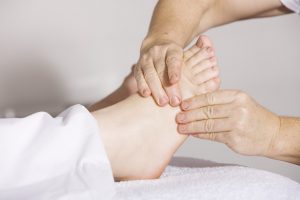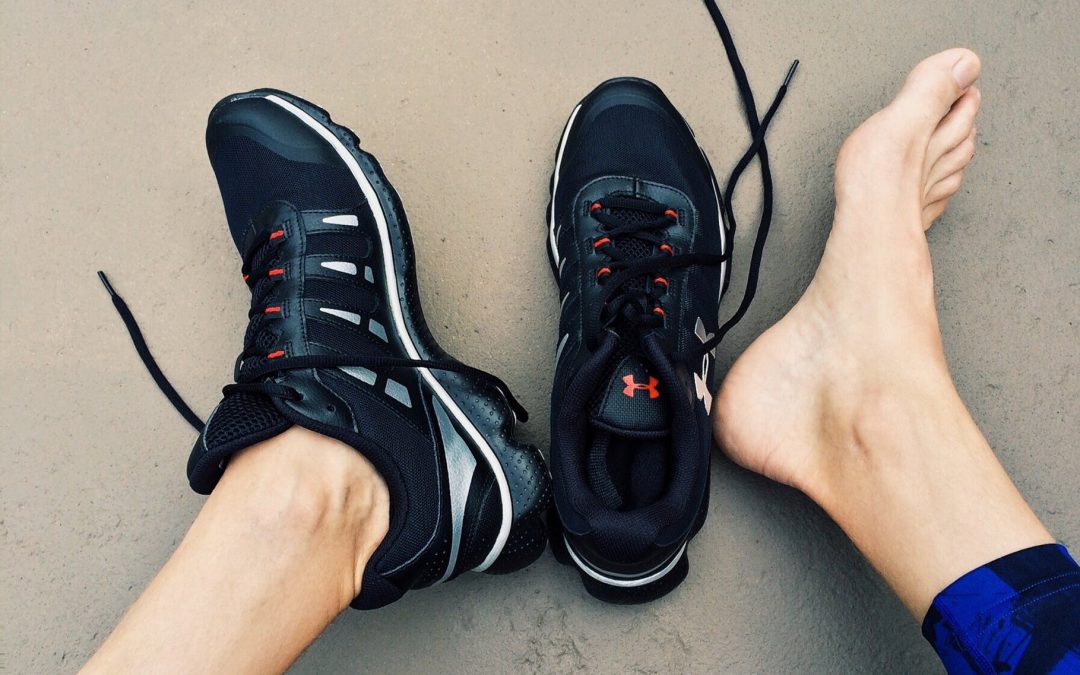If the first steps you take in the morning right after waking up cause a stabbing pain in your heels, then you might be suffering from plantar fasciitis. It is an inflammation of the plantar fascia, the tissue which connects your toes to your heels. This is especially common in runners and people who have to stand for long periods of time.
While the stabbing pain in the morning often subsides as you go about your day, it can create big problems for you in the future. That is why it is always best to get treated by a chiropractor before things get worse.
Understanding plantar fasciitis
A thick, web-like ligament called the plantar fascia supports the foot from the heel to the toes. While walking, the plantar fascia stretches to absorb the impact from the ground at every step.
It is a non-flexible ligament and straining it with excessive standing or any strenuous foot activity for a prolonged period can result in swelling and inflammation which is called as plantar fasciitis. Though the pain eases throughout the day, the first few steps after waking up are the worst.
Usually, the plantar fascia ligaments go through a lot of everyday wear and tear, but they are able to manage it all and support the arch of the foot by acting as shock absorbers. But putting too much pressure on the feet can ultimately cause the plantar fascia to swell which can in turn lead to pain and inflammation. A tear in the ligament can also lead to plantar fasciitis.

Plantar fasciitis is one of the most common and often persistent orthopedic issues. Runners, hikers, walkers, and nearly anyone who needs to stand for a living like receptionists, doctors, or cashiers are prone to this. At the same time, running on pavement or walking on concrete can increase the risk of you getting plantar fasciitis.
While some people recover from plantar fasciitis with a little rest, stretching, or by using optimum arch support, it usually requires professional attention to solve the problem. . Plantar fasciitis can get more stubborn and painful for people who have to constantly stand every day or do not get their treatment on time. In severe, chronic cases, this issue will drag on for years.
The most common symptoms of plantar fasciitis include:
- Tenderness in the bottom of the foot
- Heel pain leading to difficulty in bearing your body weight on the involved foot
- Intense pain in the heels right when you take your first steps in the morning
- Swelling at the bottom of the foot
- Intense heel pain after physical exercise
What causes plantar fasciitis?
People who are obese or overweight are at a greater risk of developing plantar fasciitis. That is because the increased body weight puts more pressure on the heel ligaments. Pregnant women can also suffer from plantar fasciitis due to this reason, especially in the later months of pregnancy.
Active men and women between the ages of 40 to 70 are at a greater risk of developing plantar fasciitis and it is more common in women than it is in men. Long distance runners are also more likely to develop this issue.
People who have structural foot problems like flat feet or high arches can easily develop plantar fasciitis. Tightened Achilles tendons (which are the tendons attached to the calf muscles of our heels) can also result in plantar fasciitis. If you already have flat feet, but you don’t wear the right footwear to support them then can become prone to plantar fasciitis. Ask about Orthotics when you visit Iceberg Health.

Severe plantar fasciitis can be challenging for patients
Just like most musculoskeletal problems, plantar fasciitis is still somewhat of a mysterious medical puzzle and there is no single solution for everyone suffering from it. Doctors need to perform in-depth tests to accurately diagnose the actual cause behind plantar fasciitis, and that can vary from patient to patient.
General family doctors are not equipped to handle plantar fasciitis properly and most podiatrists (foot doctors) are more focused on surgeries, so they may not be able to give you the right advice for chronic repetitive strain injuries.
That is why chiropractors are the best practitioners to go to if you are looking to get your plantar fasciitis treated. They can help get to the root of the problem by accurately diagnosing which of your everyday activities is the cause behind your plantar fasciitis. They can also suggest the right therapies that can help cure and prevent the condition from reappearing in the future as well. They may even suggest shockwave therapy, which is very beneficial for permanently curing plantar fasciitis.
Conclusion
Iceberg Health can assist you in getting rid of plantar fasciitis pain completely. Check our google reviews to see why we are the highest rated chiropractic clinic in Georgia. We have the most advanced technology and healing hands to help you ease even the most severe pain.
Call us at 678-505-0000 and visit us at one of our locations in Lawrenceville, Marietta, Morrow or Midtown and book a free consultation session with an expert therapist who will closely examine your foot and suggest a treatment most suitable for your problem.


Recent Comments